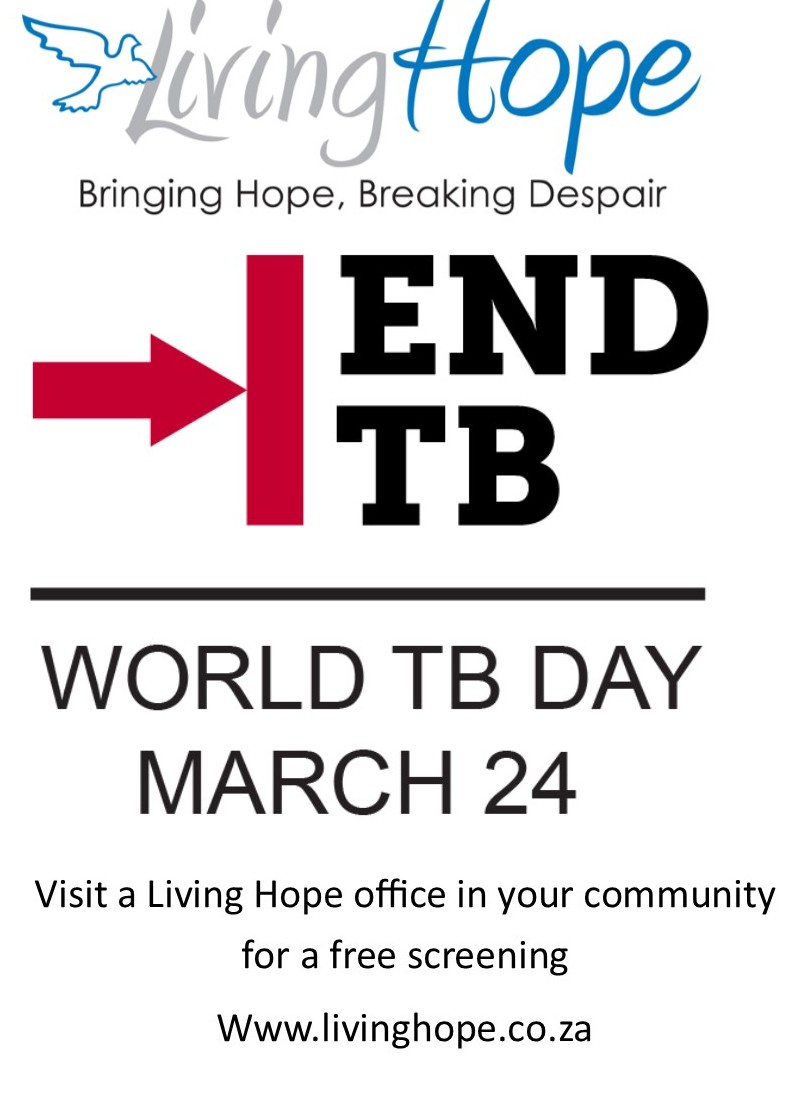TB IS IN THE AIR
Living Hope serves several hundred TB clients on an ongoing basis in the areas in which it works from Military Road south all the way to Cape Point.
TB knows no boundaries, does not respect one’s status in a community, or whether one is rich or poor. If one’s immune system is weak, there is a risk of getting TB. Tuberculosis is an airborne infectious disease caused by a bacterial infection – Mycobacterium tuberculosis (MTb). TB most commonly affects the lungs but can affect any organ in the body.
Someone with TB can spread the infection to others simply by coughing or sneezing. Symptoms of tuberculosis include coughing for 2 weeks or more, coughing up blood, night sweats, weight loss and exhaustion.
TB Anywhere is TB Everywhere
If you have one or more of the symptoms you must go to a local clinic and ask for a TB test. This is usually done by having a sputum test.
TB is curable
TB can be treated and cured if clients complete the entire treatment, but unfortunately about 40% of TB patients go undiagnosed and they continue to spread the disease. TB patients are treated with several different medications for at least six months, and some struggle with serious side effects. For multidrug-resistant TB (MDR-TB), treatment lasts 1-2 years, (although new treatment is now available which is a 9 month course of medication) with painful injections and drugs that can cause side effects. A person being treated for MDR-TB typically needs up to 14,600 pills and 460 injections. Treatment is even harder on extensively drug-resistant TB (XDR-TB) patients and the success rate is even lower.
The negative economic impact of TB can be devastating for individuals, families and communities, especially when the household earner has MDR TB and is unable to work for months, making it very difficult to care for their families and especially children.
Living Hope would appreciate any donation of non-perishable foods to assist those presently on TB treatment. You can calll Living Hope on 021-784 2800.
Help prevent the spread of TB by ensuring public spaces and transport are well ventilated, cough into your shoulder and not into the air, sneeze into a tissue and dispose of it, do not spit on the ground. Children can get TB but do not pass it on. If anyone under 5 years of age has been in contact with someone with TB they should visit their local clinic and be tested as soon as possible, as should anyone who has a compromised immune system and develops symptoms.
If more information on TB is desired, do not hesitate to contact Living Hope.

